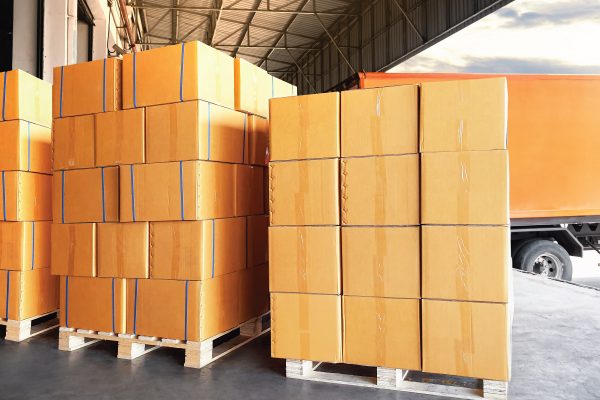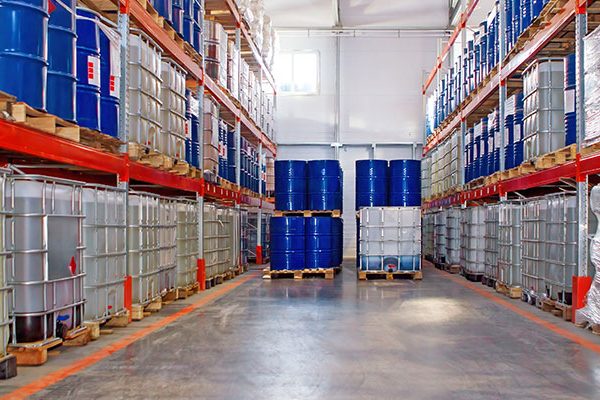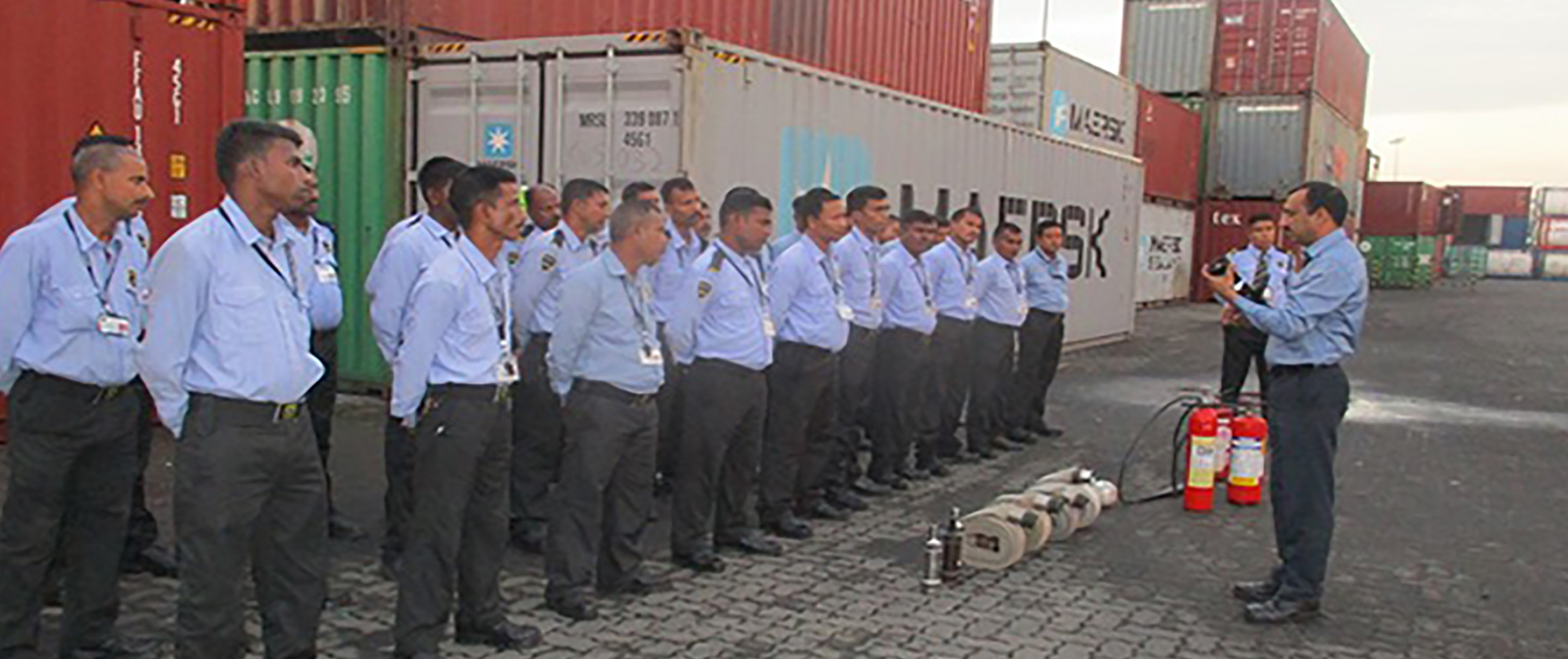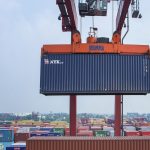India has a spotty record with industrial safety—a study by the British Safety Council in 2017 stated that 48,000 workers die from accidents caused at the workplace. This is despite 13 labour laws dealing with the safety, health and working conditions of workers already in place. In July 2019, the central government moved to strengthen this framework, when the Union Cabinet approved a new single labour code and it was introduced in Parliament. Allcargo is harnessing the dichotomy of speed and safety at its facilities. While businesses may want their products to be processed through ports quickly, Allcargo also ensures that this happens with zero incidents.
Over half a million twenty-foot equivalent units (TEUs) of container traffic, carrying everything from edible oil to sports shoes course through the facilities of Allcargo Logistics. While speed is of the essence in this business, the company does not compromise on efficiency and safety.
While businesses may want their products to be processed through ports quickly, Allcargo also ensures that this happens with zero incidents, keeping everyone on site safe and sound, even as its facilities hum with activity. Employees, business partners and vendors are all expected to conform to the highest levels of safety, with the company striving to have a zero-incident environment at all its sites.
“When you work with the world’s leading companies, there is no scope for compromise. Our QHSSE standards are top notch. We are constantly evaluating them and also collaborate with our customers to enhance our safety standards. As we establish leadership positions across different business verticals, we also consider it an imperative to lead the industry in adopting the highest level of safety and training standards,” said Mr. Adarsh Hegde, Joint Managing Director, Allcargo Logistics Ltd.
India has a spotty record with industrial safety—a study by the British Safety Council in 2017 stated that 48,000 workers die from accidents caused at the workplace. This is despite 13 labour laws dealing with the safety, health and working conditions of workers already in place. In July 2019, the central government moved to strengthen this framework, when the Union Cabinet approved a new single labour code and it was introduced in Parliament.
Allcargo is well ahead of the curve and its facilities are some of the safest ones in the country. Allcargo’s Quality Health Safety and Security Environment (QHSSE) procedures set the benchmark for policies in these areas, with processes tailored exclusively to the needs of different customers and industries. From handling over-dimensional cargo and heavy equipment to moving automobiles and storing chemicals, the logistics major has its best-in-class safety processes in place to deliver flawless service to its clients.
“Safety is woven into our DNA. We have a host of regular safety processes, including fire and safety drills, safety awareness campaigns, exhaustive checking and certification of equipment, and timely OHSAS and fire and safety audits. It is this unfailing commitment to safety that even our customers trust and vouch for when they work with us,” elucidated Mr. Hegde.
Within facilities and at sites, latest equipment and technology helps the company set a high bar for safety. All equipment undergoes stringent maintenance programmes, ensuring reliability and safety always.
Warehouse safety: A top priority
Heavy machinery, large objects and hazardous materials all operate in conjunction inside a warehouse. Adopting the highest safety norms is paramount to protect workers, contractors, visitors and business partners at these busy facilities.
Consider the facility set up in Kurkumbh, two hours east of Pune, Maharashtra—for Cargill, the food and agricultural products giant — by Avvashya CCI, Allcargo’s specialised warehousing arm.
The facility was built in an existing Cargill unit and helps with the storage of a range of oils including sunflower oil, soybean oil, olive oils, flavoured oils and Vanaspati (a type of hydrogenated oil). In such a dangerous environment, safety is of utmost importance and Allcargo leaves no stone unturned.
The Kurkumbh operation follows the highest of safety protocols, including in-rack fire sprinkler system, fire hydrants, different types of fire extinguishers, CCTVs, smoke alarms, as well as face and eye washers in case of accidents. All employees don personal protection equipment. The warehouse also enforces one-way movement and no-entry zones to avoid accidents within the space.
Securing projects and engineering
While carrying out transportation for projects at challenging and often inaccessible locations, each type of cargo presents a special safety challenge. Consider the case of over-dimensional cargo movement, where special safety measures are used to ensure smooth transit. They include technical route survey, studying load carrying capacity of roads and bridges enroute, method statement of movement of cargo, permissions from authorities, equipment inspection and certification, hazard identification and risk assessment, contingency plans, inspection of lashing, daily tool box talks, speed monitoring, and several more safety measures.
Similarly, for movement of hazardous cargo, there are additional levels of safety, with special training conducted by external experts and statutory compliance completed in advance for this dangerous cargo. Allcargo’s employees spend 1.74 man-days per year on safety training, the highest in the industry.
Everyone is mandatorily required to take safety courses. Right from the operators of high-end cranes to the truck drivers who are counselled about the ill-effects of alcohol and drug consumption.
Allcargo manages a wide range of projects at sites across India, ranging from oil and gas to wind energy. All the sites across India are divided into four zones, and each is looked after by a dedicated safety in-charge, with safety supervisors at sites implementing the safety policies and best practices.
Allcargo’s Projects and Equipment division has renewed its OHSAS 18001:2007 Standards Certification and Lifting Equipment Engineers Association (“LEEA”) Certification.
Caring for your containers
Path-breaking RFID technology offers continuous visibility of containers when in the Container Freight Stations (CFS)/Inland Container Depots (ICD) to ensure safety. Besides this, Allcargo’s CFS and ICD facilities are state-of-the-art, IT-enabled and 100% pilferage-proof. Those at Chennai, Nhava Sheva, Dadri, Kolkata and Mundra are ISO, OHSAS and Global Security Verification (GSV) certified. This involves a detailed scrutiny of all documents and controls in place at the site. Allcargo’s facilities are also Customs-Trade Partnership Against Terrorism (C-TPAT) compliant and Authorized Economic Operator (AEO) certified by the Union Government—important pre-requisites pertaining to EXIM business.
Containers with hazardous materials are handled strictly as per the IMDG (International Maritime Dangerous Goods) code. Periodic exams and external-party audits ensure that staff members are adept at handling HazMat. As an innovative method to ensure compliance, each operations person is given a HazMat handling card, which is a ready reckoner for safe stacking of hazardous materials.
Even visitors to Allcargo’s facilities are given a basic orientation on dos and don’ts, emergency exits, etc., before they enter.
All the measures, policies in place and certifications acquired only strengthen Allcargo’s resolve and commitment to safety and training best practices that meet global standards. The company’s efforts are directed towards making safety so integral to all its operations that even customers consider it a given while partnering with Allcargo for logistics services.















